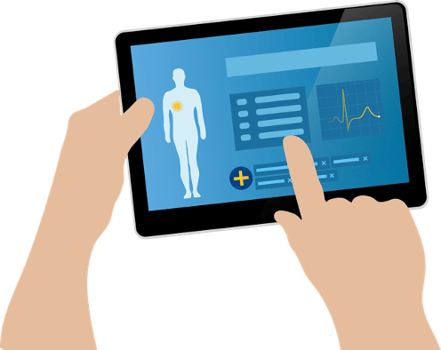 Why do I need an annual physical? I feel fine.
Why do I need an annual physical? I feel fine.
No news is not always an indicator of good news.
An annual physical is one easy way to help you stay on track to prevent health issues or get an early diagnosis when it’s easier to treat. Having a relationship with a primary care doctor keeps your records and history in one place, making it more likely to see potentially important changes that occur from year to year.
What can I expect at an annual checkup?
Regular checkups are separate from seeing your doctor or caregiver at an urgent care clinic for sickness or injury. In addition to physical exams, an annual checkup focuses on several things, including preventive care:
- Vital signs - recording your key numbers, such as, temperature, blood pressure, heart and respiration rate create a baseline. What’s “normal” for you may be different than what is for others, and important for your ongoing care.
- Screening tests - checking for diseases early, when they may be more easily and successfully treated.
- Vaccines - preventing diseases and other health problems by helping your body remember how to fight a specific infection in the future. The Centers for Disease Control and Prevention (CDC) shares recommendations here.
- Medication management - making sure your prescriptions, over-the-counter drugs, and supplements don’t interact with each other is critical.
- Family history discussion - informing your doctor about family health issues, such as cancer, heart disease, diabetes, or osteoporosis, lifestyle choices or environmental impacts, all of which can impact your health and help your doctor best care for you.
- Education and counseling - helping you make informed health decisions.
What are suggested health screenings?
Your doctor can advise you on the need and frequency of the below screenings, based on your health and family history. The CDC also has an easy list for reference.
- Breast cancer - mammograms do not prevent breast cancer, but are the best way to find it early, before it is big enough to feel or cause symptoms.
- Cervical cancer - Pap test can find abnormal cells in the cervix which may turn into cancer. The HPV test looks for the virus (human papillomavirus) that can cause these cell changes.
- Colon cancer - colonoscopy can find precancerous polyps, so they can be removed before they turn into cancer.
- Lung cancer - low-dose computed tomography for people who have a history of heavy smoking, and smoke now or have quit within the past 15 years.
- Prostate cancer - prostate specific antigen (PSA) test identifies high levels of PSA in the blood and/or a digital rectal exam; either or both may be used for men with a family history of prostate cancer, and for African American men who have a higher risk.
Smile! Dental health is the front door to your body
And don’t forget about semi-annual dental exams. They can show signs of nutritional deficiencies or general infection that affects the entire body, including mouth lesions or other oral problems. Oral health is especially important if you have diabetes: If the sugar level is high in your blood, it's high in your saliva too. Bacteria in plaque, a sticky film, use sugar as food and can cause tooth decay and gum disease, reminds the CDC.
Do it for yourself
An annual physical is one of the best appointments that you can make for yourself — and those who depend on you. The doctors and nurses at Lane Family Practice are here to help keep your health on track.



.png?width=850&height=850&name=lane%20badge%20(1).png)


-1.png?width=711&height=711&name=healthy%20br%20(4)-1.png)

